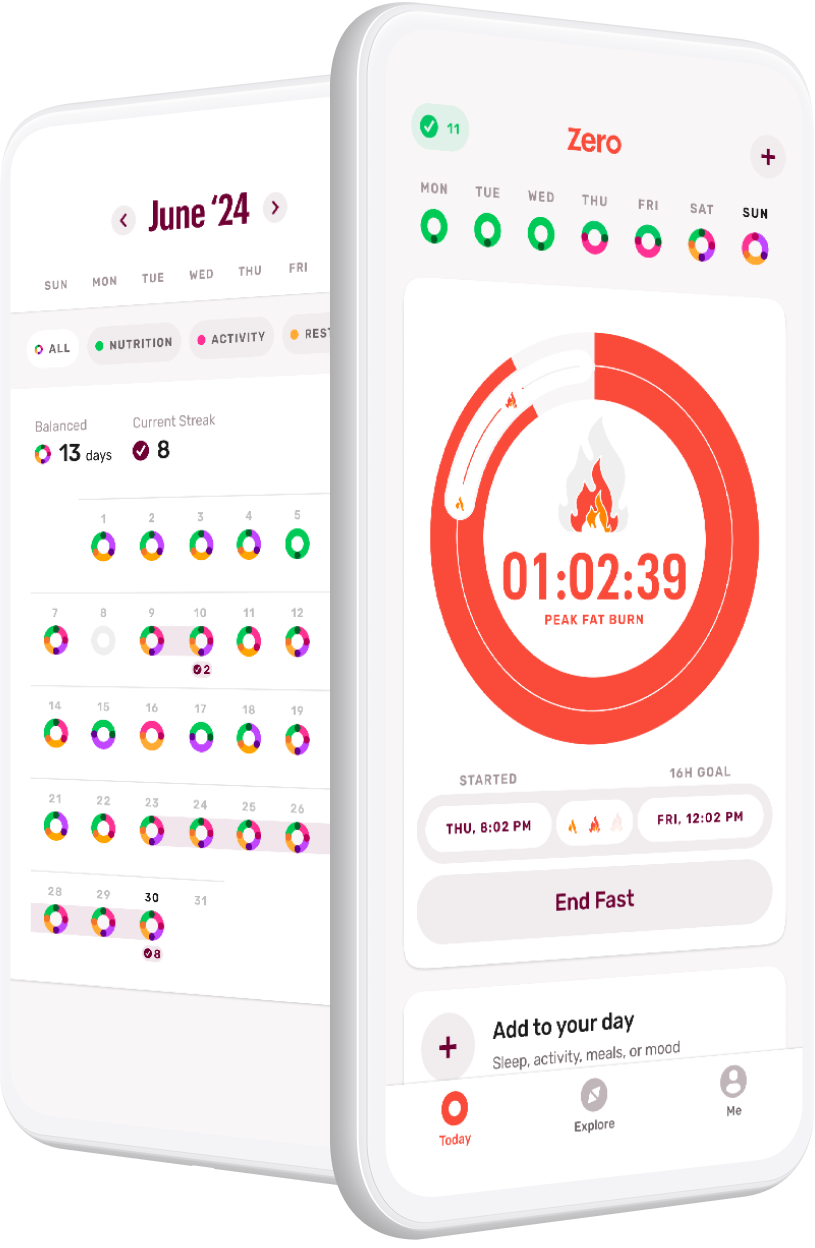Written and medically reviewed by Rich LaFountain, PhD
As interviewed by Rich LaFountain, PhD
Brianna Stubbs wants you to know that ketones are a miracle molecule within your body — and that you can easily leverage their power through fasting, dietary composition, and supplementation.
Brianna Stubbs, PhD, is a leading expert in ketone metabolism and ketone supplementation. As a double World Champion rower, scientist, and researcher, she enjoys making discoveries to help people unlock healthier metabolic function so they can meet their unique energy demands and live better, longer. We recently spoke with her about her experience as a world-class athlete and her ongoing research investigating ketones as longevity molecules.
Q&A with Brianna Stubbs, PhD: Ketones for Enhancing Health and Longevity
Q: How did you get started in ketone research?
A: I was introduced to ketone-ester supplementation and research as a collegiate athlete. At the time, I was not focused on longevity, but rather in the performance advantages associated with ketones. I don’t think I would have pursued my PhD if it weren’t for my experience as an athlete. My original plan was medical school, but I was a rower during university, and I even represented Great Britain’s national rowing team. Looking back now, if I weren’t rowing at the elite level, I probably would not have been introduced to ketone supplementation at all.
Early on, I was motivated by my performance goals to use and study ketones from an individual perspective. I am still quite active, but my goals are not exclusively focused on performance anymore. Ketones and ketone metabolism have many whole-body benefits, not only for sport performance but also for general health across our lifespan.
My early introduction to research centered around how to leverage ketone metabolism for performance optimization, and it has taken me on a journey where now I primarily focus on ketones as healthy-aging metabolites. My research has shown me that there is a clear link between physical activity and human longevity.
Q: Your early research on ketone metabolism was so wonderful. Can you bring us up to speed on your work now?
A: I am a lead translational scientist at the Buck Institute for Research on Aging. For the past several years, we have been working very hard to discover and formulate ketone-ester supplements that are effective and more palatable than earlier versions. Ketone esters are known for having a unique bitter taste, which can put some people off. This was less of a problem for animal-model research, but with our exciting expansion into human research at the Buck Institute, we now have better supplements available.
There are many healthy and active people within the local community of Marin county, which enables us to look at the interplay between healthy aging and performance. We have an exciting ongoing study, called the BIKE (Buck Institute Ketone Ester) study, in which we are investigating the effects of daily ketone supplementation on healthy individuals over 65 years of age. We also have some collaborative work funded by the Department of Defense, in which we are studying the effects of ketone-ester supplements on both active-duty soldiers and aging veterans.
Ketones are much more than an energy source, as they also have drug-like, signaling, and epigenetic effects throughout the body that might improve healthy aging. At the Buck, we believe it should be possible for people to enjoy their lives at 95 as much as they do at 25, and to achieve that, we’re working to improve understanding of the biology of aging itself.
Q: We have seen several articles and press releases about the exciting human trial you are doing at the Buck Institute for Research on Aging. Can you tell us some more about that trial?
A: The BIKE study is especially exciting, as it is the first clinical study that’s ever been done at the Buck Institute. The study is a double-blinded parallel-cohort study of a ketone ester versus a taste- and calorie-matched placebo. Interestingly, the BIKE study is funded, in part, by philanthropic donation. As it turns out, an individual from the community had been using ketone supplements and was impressed by the results, and he wanted to see if his experience was scientifically valid, so he decided to contribute directly to research.
The BIKE study was designed so that the biomarkers will match those associated with another study called the TAME (Targeting Aging with MEtformin) trial. (Good research always needs a good acronym!) Metformin is commonly used to treat diabetes, but it may have anti-aging effects, especially in delaying chronic disease.
The BIKE study is not a direct comparison to the TAME trial, but the design similarities allow for advanced learning more quickly. We hypothesize that ketone supplementation likewise can improve markers associated with aging and help keep glucose levels in a lower, healthier range. The BIKE study is 12 weeks long, and participants are randomly assigned to consume either the 25-gram ketone-ester supplement or the indistiguishable placebo.
There is a battery of tests that we administer at baseline and after 12 weeks. There is also a health check-in four weeks into the study, just to make sure things are going well for each individual participant. We are mostly evaluating feasibility, safety, and tolerability, because no one has actually ever studied daily ketone-ester supplementation in individuals over 65 years like this before.
Q: Can you tell us a bit more about the outcome measures used to evaluate participants in the BIKE study, and why these markers are relevant to anyone concerned with healthy aging?
A: In addition to establishing this protocol for supplementation as healthy and efficacious, it’s a wonderful opportunity to collect secondary measures and exploratory variables. Ketones are anticatabolic, which means they protect and sustain muscle from being metabolized, and they may be important contributors to reducing inflammation and muscle sparing, which occurs despite no food and protein intake while fasting.
Overall, muscle strength is increasingly recognized as a predictor of delayed aging and enhanced longevity. We are doing some physical function testing where we evaluate maximal strength and muscle endurance of the lower body using the leg press. We also measure grip strength, which is a strong predictor of mortality and lifespan. Although it’s a shorter study, we are interested to see if elevating ketones via supplementation supports muscle maintenance and strength in comparison to the placebo.
There are also a slew of clinical-style tests, the kind that might be administered in the doctor’s office, like balancing tests and gait speed. There are objective standards and criteria for all of these things, which would define whether someone is frail or starting to exhibit functional decline associated with frailty. Finally, we give the study participants a Fitbit to track general physical activity, steps, and movement. We plan to take a cursory glance at sleep based upon some of the wearable data.
Q: How do fasting, the ketogenic diet, and ketone supplements differ from one another?
A: There is certainly overlap between the supplements and dietary methods used for increasing your body’s access to ketones, but there are also key differences that might allow people to be strategic in the methods they select. Both fasting and the ketogenic diet can elevate ketone levels in the body, for example. Fasting and ketogenic diets can elevate ketone levels for long periods of time, measured in days or weeks. Ketones remain elevated until blood glucose and insulin levels rise, usually after a meal containing carbohydrates is consumed. Ketone supplements, on the other hand, can elevate ketones even if they are consumed alongside food, but the ketone elevation is transient, lasting only a couple of hours without repeated doses. Ketones have many health benefits throughout the body, which has spurred interest in combining fasting and ketogenic diets as a strategy for metabolic health.
However, not everyone wants to follow a ketogenic diet or has the ability to fast long enough to boost ketone levels — that’s where ketone supplementation comes in. Over the last 40–50 years, ketone supplementation has been researched in the context of clinical, performance, and aging scenarios. Ketone supplements increase ketone levels in the body, but they are time limited, so, in most cases, blood ketone levels will have returned to baseline levels 2–4 hours after consuming.
Q: What are the biggest misconceptions people have about ketone supplements?
A: One of the biggest misconceptions I hear is that, because fasting and ketogenic diets are so often used to aid in weight loss and metabolic health, people assume that ketone supplements are capable of doing the same thing. The research indicates that’s likely not the case, because your metabolism in nutritional ketosis from diet or fasting differs somewhat from ketone supplementation. For starters, fasting and the keto diet cause you to have low blood-glucose and insulin levels for hours, days, or weeks on end, which enhance fat burning and the production of ketones, known as ketogenesis. Conversely, you can elevate your ketone levels (known as ketosis) with a ketone supplement without increasing fat burning and natural ketone production.
Contrary to the marketing materials on some ketone-supplement products, ketone supplements do not increase your rate of fat burning, even though they increase ketone availability. Ketones can be thought of like macronutrients; ketones contain calories (energy), so if you consume a supplement, your body is not going to selectively burn fat stores for energy, which would occur during fasting, for example.
Ketone supplements provide your cells access to ketones quickly, and they do not require fasting or a very low-carbohydrate diet. Some people are not ready to fast, nor are they willing to commit to a ketogenic diet, so supplements can help in the interim. There are pros and cons to each. For instance, ketone supplements are not inexpensive at this point, whereas fasting is absolutely free.
I am highly interested in exploring the range of options so that we can have a clearer picture of the benefits of fasting, diet, and supplements to support ketosis, metabolic health, and aging. There are also hybrid approaches involving combinations of fasting, nutrition, and supplementation that could help people to build their own sustainable healthy habits around what and when they eat.
Q: What are some of the applications of ketone supplements for metabolic health and energy levels?
A: There is a strong relationship between ketone supplements and lower blood-sugar levels. There was a 14-day study where participants wore continuous glucose monitors (CGM), and the people who consumed ketone drinks had fewer fluctuations and lower glucose levels. There may be some interesting applications for ketone supplements, which include reducing glucose spikes following meals.
Much like drinking a shot of apple cider vinegar is effective in curbing glucose, ketone supplements reduce blood glucose in addition to having anti-inflammatory benefits. Again, this is an acute effect that occurs following meals, so it is not as powerful for glucose control as fasting or low-carbohydrate diet strategies; however, it may have its place in the toolkit for managing or avoiding glucose spikes and supporting metabolic health.
Remember, ketones are a fuel source and they contain calories. When ketones are elevated, they provide yet another fueling option for the body. Many people who fast are familiar with a reduction in hunger that can occur while fasting. Often, that coincides with an increase in ketones in the blood. Ketone-ester supplementation has been shown to suppress appetite by lowering ghrelin (the hunger hormone). Even if ketones are provided directly from a drink, they still have fueling and signaling effects that may be helpful for regulating energy levels and supporting healthy body weight, which is crucial to metabolic health.
Another promising area of research demonstrates that when ketone levels are more abundant in the blood, they are used for energy and can even help to make up energy deficits that are characteristic of diseases like Parkinson’s, Alzheimers, and heart failure. In many cases, ketones may displace glucose as a fuel for the brain as well as other organs like the heart, which improves energy efficiency.
Q: How do you apply your knowledge and experience in your own health and longevity habits?
A: I used to consume ketone supplements regularly. Now that my focus is less performance-oriented, I have found that I benefit from using ketone supplements as a post-workout strategy during my longer, high-volume Ironman training. On these days, I am putting in back-to-back training sessions, and I believe the ketones are helping me feel more recovered. After a fairly intense athletic career, I now am enjoying more balance in my nutrition practices; whereas during my competitive rowing years, I was very lean and probably almost always at a calorie deficit with training. Now, my energy intake and body weight are more stable, and I use some time-restricted feeding and fasting every now and then.
I also choose to complete certain exercise sessions in a low-carb or fasted state, especially if it’s a long duration and low-to-moderate intensity workout to improve my metabolic flexibility and fat-burning capacity. After all this time working with ketones, I know there are true health and longevity benefits associated with them.
Wrap-Up
Ketones have come a long way, from being maligned as metabolism’s ugly duckling to now being understood as important natural molecules that promote metabolic health and physical performance. If you want to learn more about Brianna’s research into ketones, health, and longevity, check her out on Twitter.
- Debunking 3 Myths Around Fasting and Thyroid Health - April 15, 2024
- Breaking Down Fast Breakers: How to Tell If Something Will Break Your Fast - March 4, 2024
- GLP-1s and Weight-Loss Medications vs. Lifestyle Interventions: What’s Right for You - February 5, 2024



